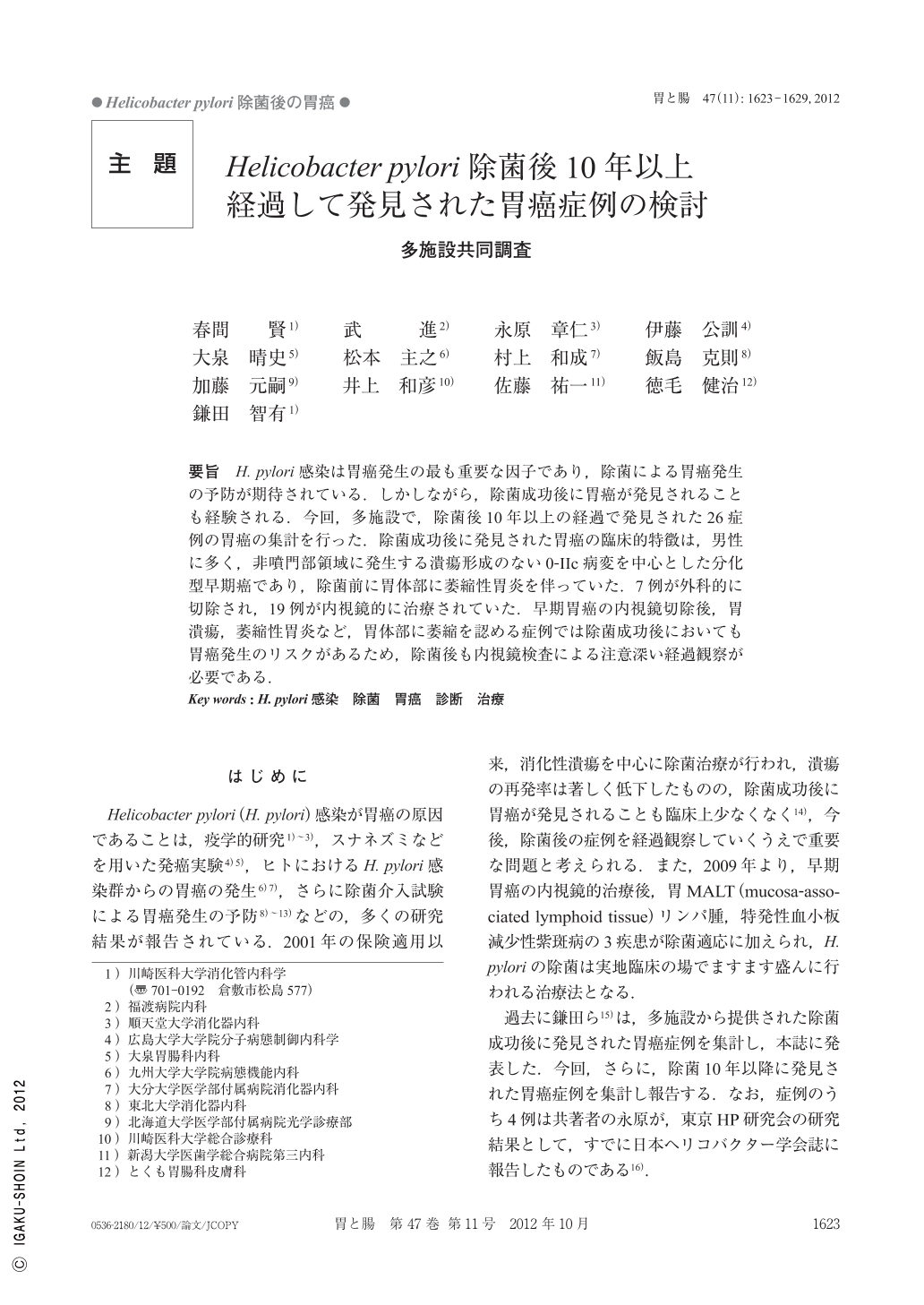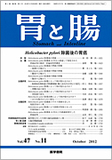Japanese
English
- 有料閲覧
- Abstract 文献概要
- 1ページ目 Look Inside
- 参考文献 Reference
- サイト内被引用 Cited by
要旨 H. pylori感染は胃癌発生の最も重要な因子であり,除菌による胃癌発生の予防が期待されている.しかしながら,除菌成功後に胃癌が発見されることも経験される.今回,多施設で,除菌後10年以上の経過で発見された26症例の胃癌の集計を行った.除菌成功後に発見された胃癌の臨床的特徴は,男性に多く,非噴門部領域に発生する潰瘍形成のない0-IIc病変を中心とした分化型早期癌であり,除菌前に胃体部に萎縮性胃炎を伴っていた.7例が外科的に切除され,19例が内視鏡的に治療されていた.早期胃癌の内視鏡切除後,胃潰瘍,萎縮性胃炎など,胃体部に萎縮を認める症例では除菌成功後においても胃癌発生のリスクがあるため,除菌後も内視鏡検査による注意深い経過観察が必要である.
Helicobacter pylori(H. pylori)infection is the most important factor in the pathogenesis of gastric cancer and the eradication of H. pylori is expected to prevent the development of gastric cancer. However, gastric cancer is sometimes discovered after successful eradication of H. pylori. We investigated the clinical features of 26 gastric cancer patients detected over 10years after successful H. pylori eradication in a multi-center study. Gastric cancers discovered after H. pylori eradication were characterized as male dominant, early non-cardiac IIc-type cancers of the intestinal type without ulceration and whose patients had corporal atrophic gastritis before H. pylori eradication. Seven cases were surgically resected and 19cases were treated by endoscopic treatment. Our study revealed that careful follow-up endoscopic examination for possible gastric cancer is necessary even after successful H. pylori eradication in patients with early gastric cancer after endoscopic mucosal resection, gastric ulcer and atrophic gastritis, if such patients have baseline mucosal atrophy in the corpus.

Copyright © 2012, Igaku-Shoin Ltd. All rights reserved.


